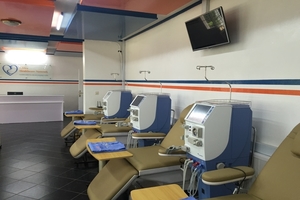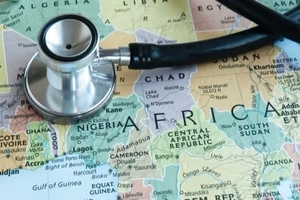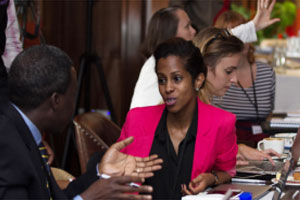The African Export-Import Bank (Afreximbank) announced the start of its African Medical Centre of Excellence (AMCE) project in Abuja, Nigeria.
It will deliver world-class care to patients of all socioeconomic backgrounds across the continent.
The Bank recently formalised its long-term partnership with King’s College Hospital, London (KCH) on the project by signing an agreement naming KCH as the AMCE’s Clinical Partner.
The Abuja AMCE’s construction is set to commence in the fourth quarter of 2021, with completion slated for the first quarter of 2024. The African Medical Centre of Excellence will be built in four phases over the course of six years, beginning with a 170-bed specialised hospital and eventually extending to a 500-bed institution.
Following a competitive bidding procedure in which Ghana, Kenya, and Tanzania all participated, Nigeria was chosen as the host nation for the first AMCE in 2017. A pre-feasibility study commissioned by Afreximbank and completed by KCH in 2015 identified the four nations as potential host countries.
“The establishment of the African Medical Centre of Excellence marks a turning point in the continent’s history. We are happy to be concretizing our goals through this project, which was designed as part of Afreximbank’s 5th Strategic Plan,” said Professor Benedict Oramah, President of Afreximbank.
“With general care capabilities that will service the whole West African area and beyond, the Abuja AMCE will address the growing burden of communicable and noncommunicable illnesses. It is a pilot project that will inspire similar medical facilities across the continent.”
The AMCE intends to provide a comprehensive spectrum of medical services, including diagnostics, therapy, nuclear medicine, surgery, and post-surgical care, as well as complementary specialised services in oncology, haematological illnesses (including sickle cell and blood malignancies), and cardiovascular maladies.
“We are thankful for the considerable assistance from the Nigerian government and are delighted to have King’s College Hospital as our partners. We are excited to benefit from their world-class experience in medicine, medical research, and training,” Professor Oramah said.
The Abuja AMCE will not only improve access to healthcare for 50,000 people per year, but it would also create 3,000 employment throughout its development and operation.
As a result of the AMCE’s establishment, Afreximbank hopes to contribute to the provision of high-quality healthcare, expanded service offerings, training, increased employment, the preservation of foreign exchange in Africa, and the development of intra-African medical tourism.
Sir Hugh Taylor, Chair of King’s College Hospital NHS Foundation Trust, stated, “We have a long tradition of delivering specialised healthcare locally, nationally, and globally at King’s. We are pleased to be expanding our clinical knowledge in services such as haematology and cardiology to assist the people of Nigeria and Africa more broadly.”



